Q. I tore my left ACL completely in a weird accident while out folfing with my kids. Since I'm not really all that active (and I am admittedly overweight), the surgeon recommended physiotherapy instead of surgery. I'm wondering if this is really the best thing for me. Maybe I should just have it repaired and be done with it. What do you think?
A. Folfing (a combination of golfing and frisbee) is a popular outdoor sport for young and old alike. Even though you aren't an athlete, having the physical ability to play a game or two of any kind with your children is important to your quality of life.
So, treatment is essential and usually does start with conservative (nonoperative) care. A rehab program supervised by a physiotherapist may be just what you need. You will regain motion and strength. The therapist will also help you retune the receptors around the knee that register small changes in motion. This is important in preventing future injuries.
Whenever the anterior cruciate ligament is damaged, there is a risk for meniscal tears or cartilage lesions. The further you are out from the date of the injury, the greater your risk. If surgery is going to be needed, there is some evidence that it should be done within the first 12 months after the injury.
Once you complete your rehab program, you, the therapist, and the surgeon will have a better idea of what else (if anything) is needed. For now, the best approach is to follow your therapist's plan of care diligently (daily) to get the best results. After that, you may want to make a follow-up appointment with your surgeon to re-evaluate your knee and your treatment plan two to three months down the road.
Lars-Petter Granan, MD, et al. Timing of Anterior Cruciate Ligament Reconstructive Surgery and Risk of Cartilage Lesions and Meniscal Tears. In The American Journal of Sports Medicine. May 2009. Vol. 37. No. 2. Pp. 955-962.



 (403) 679-7179
(403) 679-7179  concierge@one-wellness.ca
concierge@one-wellness.ca 

